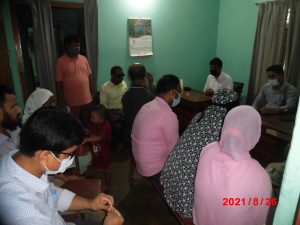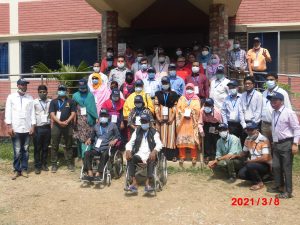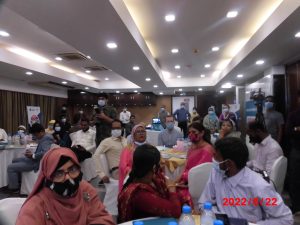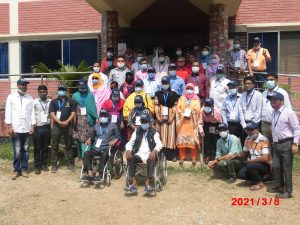Legal Aid and Rights Awareness The Legal Aid and Rights Awareness Program of SEDAD (Socio-Economic Development Association for Disabled) aims to empower persons with disabilities, women, and other marginalized groups by ensuring their access to justice, protection of rights, and awareness of legal and social entitlements. SEDAD recognizes that many individuals with disabilities face discrimination, exploitation, and exclusion due to limited knowledge of their rights and barriers within the legal system. Through this program, the organization works to bridge the gap between vulnerable communities and the justice system by providing both legal education and direct legal support. Key Activities Rights Awareness Campaigns: Organizing community meetings, workshops, and outreach sessions to educate people about national laws such as the Persons with Disabilities Rights and Protection Act, Women and Children Repression Prevention Act, and related human rights frameworks. Legal Aid and Counseling: Offering free legal advice, mediation, and referrals to legal services for victims of discrimination, violence, or rights violations. Capacity Building: Training community leaders, persons with disabilities, and women on human rights, advocacy skills, and legal procedures to strengthen grassroots justice initiatives. Advocacy and Policy Engagement: Collaborating with government bodies, human rights institutions, and NGOs to influence policy and promote rights-based inclusion. Awareness Materials: Developing accessible information materials such as Braille booklets, sign-language-supported sessions, and easy-read guides to ensure that legal information reaches everyone, including those with sensory disabilities. Impact Through its Legal Aid and Rights Awareness initiative, SEDAD has enabled marginalized individuals—especially persons with disabilities and women—to become informed, confident, and active rights-holders. The program promotes a culture of justice, equality, and accountability, contributing to the broader goal of an inclusive and rights-respecting society in Bangladesh.








